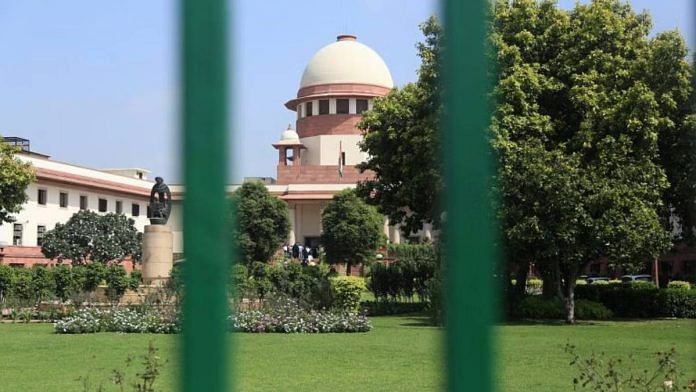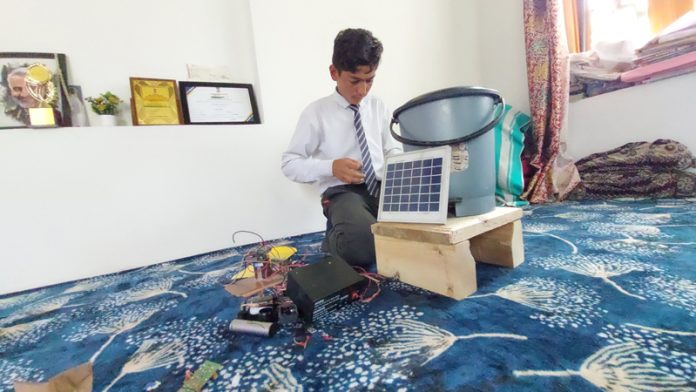
New Delhi: The Supreme Court Monday ruled that downloading, watching or storing pornography involving children on a digital device would amount to an offence under the Protection of Children from Sexual Offences Act (POCSO Act), and indicated an intention to share if the clip was not deleted or reported. A bench of Chief Justice of India D.Y.
Chandrachud and Justice J.B. Pardiwala thereby set aside a Madras High Court ruling from January, which said mere storage of such material without any intention to transmit was not an offence under POCSO.

The judges observed the high court had committed an “egregious error” in quashing criminal proceedings against a 28-year-old man accused of downloading and watching pornographic content involving children on his mobile phone. “Mens rea (criminal intent) has to be found from the storage of such pornographic material. To establish offence under Section 15(3) [of POCSO Act], apart from storage of child pornographic material, it has to be shown that such storage was done to make some gain or advantage,” the top court held.
The bench also disapproved of the use of the word “child pornography” and suggested Parliament bring an amendment to the POCSO Act to refer to such material as “child sexual exploitative and abusive material”. “We have suggested an ordinance can be brought in. We have asked all courts not to refer to it as ‘child pornography’ in any orders,” the bench said.
Authored by Justice Pardiwala, the judgment also contains guidelines and suggestions for the enforcement of the POCSO Act. Two NGOs, Faridabad-based Just Rights for Children Alliance and New Delhi-based Bachpan Bachao Andolan had challenged the Madras High Court order of 11 January quashing criminal proceedings pending in a sessions court against a 28-year-old man accused of downloading “in his mobile phone pornographic materials pertaining to children”. Senior Advocate H.
S. Phoolka, representing the NGOs, argued before the apex court that the high court verdict was contrary to laws in this regard. The high court had ruled that in order for one’s actions to constitute an offence under section 67-B of the IT Act, an accused must have published, transmitted or created material depicting children in a sexually-explicit act or conduct.
“A careful reading of this provision does not make watching child pornography, per se, an offence under section 67-B of the Information Technology Act, 2000,” the high court added, quashing the criminal case against one S. Harish under the POCSO Act, 2012 and IT Act, 2000. It said the two videos involving two children downloaded and stored on the petitioner’s mobile phone, were neither published nor transmitted to others and therefore were within the petitioner’s private domain.
The Madras High Court, however, expressed concern over children watching pornography. It said watching porn could have negative consequences on teenagers, affecting their psychological and physical wellbeing. The bench of Justice N.
Anand Venkatesh advised the petitioner to attend counselling if he was still afflicted with the addiction of watching pornography. It also said “Generation Z children are grappling with this serious problem and instead of damning and punishing them, the society must be mature enough to properly advice and educate them and try to counsel them to get rid of that addiction”. Also read: Adoptive mom took 3-yr-old to hospital in 2018.
Now she’s a POCSO accused — chronicle of a complex case var ytflag = 0;var myListener = function() {document.removeEventListener('mousemove', myListener, false);lazyloadmyframes();};document.addEventListener('mousemove', myListener, false);window.
addEventListener('scroll', function() {if (ytflag == 0) {lazyloadmyframes();ytflag = 1;}});function lazyloadmyframes() {var ytv = document.getElementsByClassName("klazyiframe");for (var i = 0; i < ytv.length; i++) {ytv[i].
src = ytv[i].getAttribute('data-src');}} Save my name, email, and website in this browser for the next time I comment. Δ document.
getElementById( "ak_js_1" ).setAttribute( "value", ( new Date() ).getTime() );.














